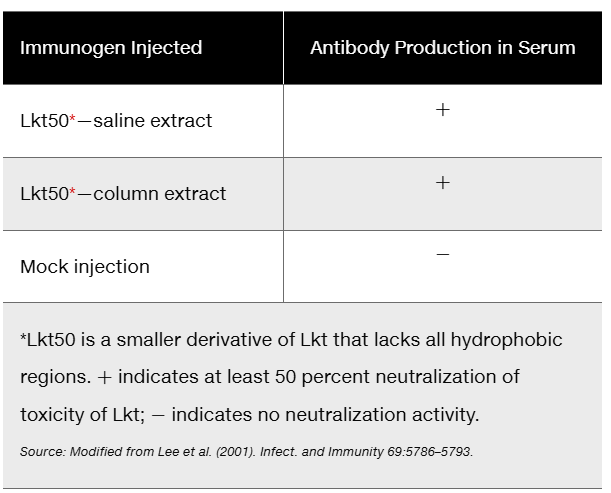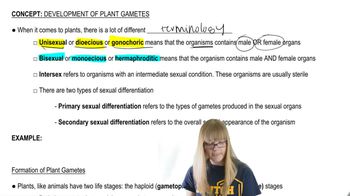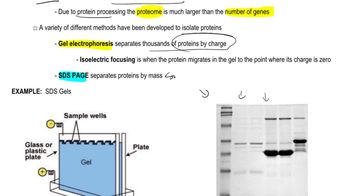Write a short essay that summarizes the impacts that genomic applications are having on society and discuss which of the ethical issues presented by these applications is the most daunting to society.
Table of contents
- 1. Introduction to Genetics51m
- 2. Mendel's Laws of Inheritance3h 37m
- 3. Extensions to Mendelian Inheritance2h 41m
- 4. Genetic Mapping and Linkage2h 28m
- 5. Genetics of Bacteria and Viruses1h 21m
- 6. Chromosomal Variation1h 48m
- 7. DNA and Chromosome Structure56m
- 8. DNA Replication1h 10m
- 9. Mitosis and Meiosis1h 34m
- 10. Transcription1h 0m
- 11. Translation58m
- 12. Gene Regulation in Prokaryotes1h 19m
- 13. Gene Regulation in Eukaryotes44m
- 14. Genetic Control of Development44m
- 15. Genomes and Genomics1h 50m
- 16. Transposable Elements47m
- 17. Mutation, Repair, and Recombination1h 6m
- 18. Molecular Genetic Tools19m
- 19. Cancer Genetics29m
- 20. Quantitative Genetics1h 26m
- 21. Population Genetics50m
- 22. Evolutionary Genetics29m
18. Molecular Genetic Tools
Genetic Cloning
Problem 4b
Textbook Question
One of the major causes of sickness, death, and economic loss in the cattle industry is Mannheimia haemolytica, which causes bovine pasteurellosis, or shipping fever. Noninvasive delivery of a vaccine using transgenic plants expressing immunogens would reduce labor costs and trauma to livestock. An early step toward developing an edible vaccine is to determine whether an injected version of an antigen (usually a derivative of the pathogen) is capable of stimulating the development of antibodies in a test organism. The following table assesses the ability of a transgenic portion of a toxin (Lkt) of M. haemolytica to stimulate development of specific antibodies in rabbits.

With regards to development of a usable edible vaccine, what work remains to be done?
 Verified step by step guidance
Verified step by step guidance1
Step 1: Understand the context of the problem. The goal is to develop an edible vaccine using transgenic plants expressing immunogens. The table provided evaluates the ability of a transgenic portion of a toxin (Lkt50) to stimulate antibody production in rabbits, which is a preliminary step in vaccine development.
Step 2: Analyze the data in the table. The table shows that both saline and column extracts of Lkt50 stimulate antibody production (+), while the mock injection does not (-). This indicates that Lkt50 is capable of eliciting an immune response in rabbits.
Step 3: Identify the next steps for edible vaccine development. Since the injected version of Lkt50 stimulates antibody production, the next step is to test whether the transgenic plants expressing Lkt50 can produce the immunogen in a form that is bioavailable and effective when consumed orally.
Step 4: Consider additional testing requirements. Oral delivery of the vaccine must be tested to ensure that the immunogen survives digestion and stimulates antibody production in the target organism (e.g., cattle). This involves assessing the stability of Lkt50 in the digestive system and its ability to elicit an immune response.
Step 5: Evaluate safety and efficacy. Before the edible vaccine can be used commercially, it is essential to conduct trials to confirm that the vaccine is safe for livestock, does not cause adverse effects, and provides effective protection against M. haemolytica infection.
 Verified video answer for a similar problem:
Verified video answer for a similar problem:This video solution was recommended by our tutors as helpful for the problem above
Video duration:
2mPlay a video:
Was this helpful?
Key Concepts
Here are the essential concepts you must grasp in order to answer the question correctly.
Transgenic Plants
Transgenic plants are genetically modified organisms that have had foreign genes inserted into their genome. This technology allows for the expression of specific proteins, such as immunogens, which can be used in vaccine development. In the context of edible vaccines, transgenic plants can produce antigens that stimulate an immune response when consumed, potentially simplifying vaccine delivery and reducing costs.
Recommended video:
Guided course

Plant Gamete Terminology
Antibody Production
Antibody production is a crucial aspect of the immune response, where B cells produce antibodies in response to antigens. The presence of specific antibodies in serum indicates that the immune system has recognized and responded to a pathogen or its derivative. Understanding how different immunogens, like the Lkt toxin from Mannheimia haemolytica, stimulate antibody production is essential for evaluating the effectiveness of potential vaccines.
Recommended video:
Guided course

Proteomics
Edible Vaccines
Edible vaccines are a novel approach to immunization that involves delivering antigens through food, typically produced by transgenic plants. This method aims to elicit an immune response without the need for injections, making vaccination more accessible and less traumatic for livestock. However, challenges remain in ensuring that these vaccines are effective, stable, and capable of inducing a strong immune response in the target organisms.
Recommended video:
Guided course

Cancer Causes
Related Videos
Related Practice
Textbook Question
390
views


